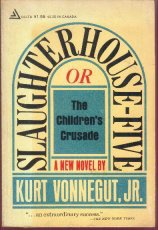Last night the eight o’clock news managed to make us happy by revealing that the Dutch economy will indeed feel the hit of the American credit crisis and grow much less this year and next. Less growth, more unemployement, more inflation and higher pices for everything, dogs and cats living together, a veritable smorgasbord of doom and gloom. though the expert on tap did say that the Dutch economy was robust enough to withstand this storm, he did predict dire consequences if wages and benefits kept rising. Which is typical:
- In the economic downturn of 2001-2003 we were told we should tighten our belts to keep our jobs
- Then when the economy started to improve, we were told that wage rises would hurt the recovery
- Then it was Balkende who said that we had to get the sour first before we’d get to the sweet, confusing everybody until we realised it still mean no wage or benefit increases until an unspecified later date
- Then the economy boomed again, unemployement dropped and vacancy upon vacancy went unfullfilled and still wages and benefits could not rise, because that would encourage infaltion and we wouldn’t want that.
- Now the economy is doing slightly less well, mainly through corporate greed and stupidity in the US and of course we cannot have rising wages when prices of everything, including food are going through the roof, because that would hurt the economy and raise inflation and offend the spirits of our ancenstral stockholders.
Meanwhile the idea that companies and stockholders could learn to live with slightly less exuberant profit margins, that’s just insane. No, it’s wage moderation all the way, even if you never catch an economist living on minimum wage. It’s always the workers who have to pay, not the capitalists.
Which is why I was pleasantly surprised by minister of Finance Wouter Bos, when he presented his plans to target top earners more. He wants to put a thirty percent tax rate on socalled golden parachutes and leaving bonuses over 500,000 euro, change the basic tax rate of hedge fund managers to a higher band and a freeze on stock and option packages of CEOs and directors of companies involved in takeovers. These measures in themselves are not that spectacular, no 100 percent income tax bands for millionaires or something like that, but if enacted are a decisive break with a decades old policy of coddling capital.
